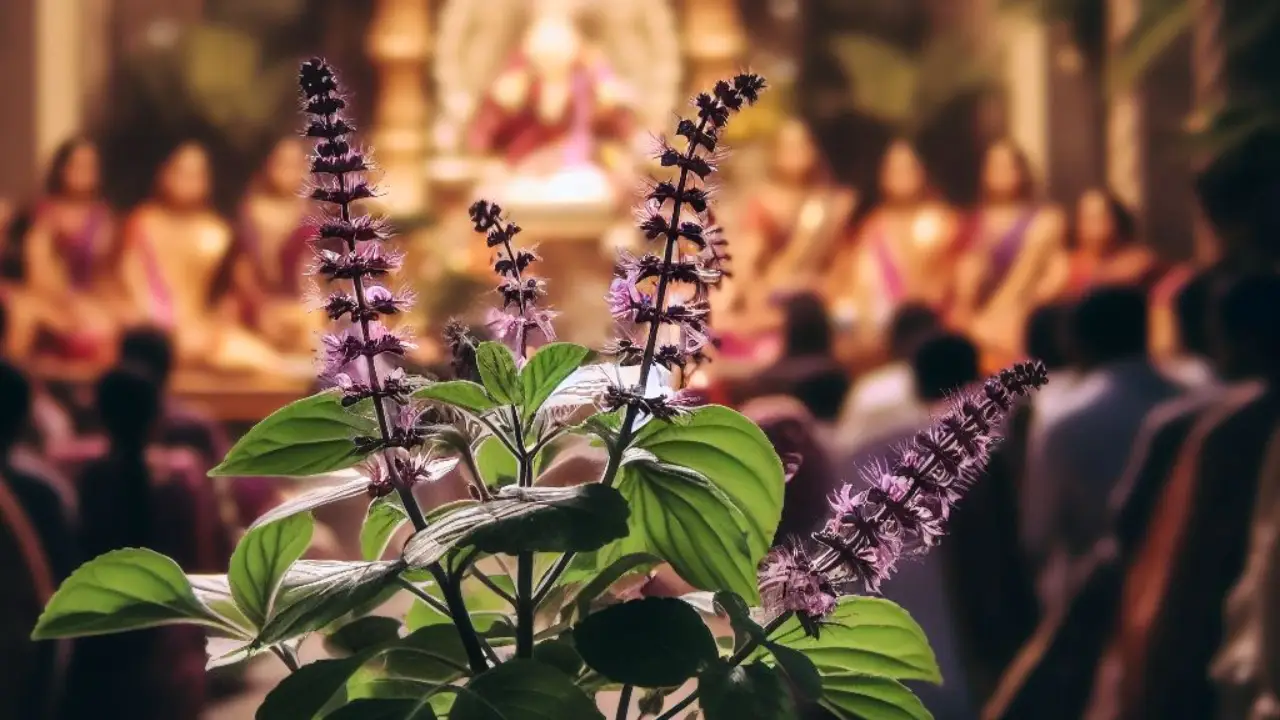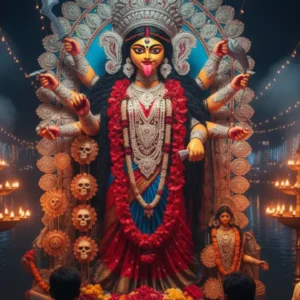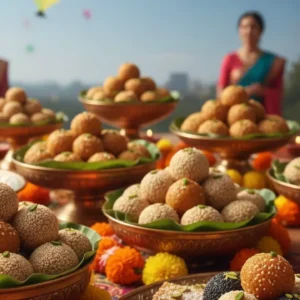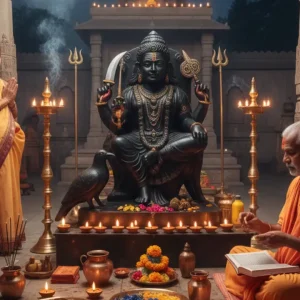In the heart of traditional Hindu culture, a celestial union unfolds annually, resonating with spirituality and reverence—the Tulsi Vivah. This sacred ceremony, steeped in tradition and mythology, marks the symbolic marriage of the sacred basil plant, Tulsi, to Lord Vishnu, the preserver of the universe. Let’s delve into the enchanting tale behind Tulsi Vivah and its enduring impact on the spiritual fabric of Hinduism.
The Ritual Dance: Tulsi and Vishnu Unite
In the celestial realm, Tulsi is revered as the embodiment of purity and devotion, while Lord Vishnu stands as the epitome of divine sustenance. Tulsi Vivah, typically celebrated on the eleventh day of the waxing moon in the month of Kartik, serves as a bridge between the earthly and divine realms. The ceremonial wedding is not merely a ritual but a spiritual journey that resonates with believers across generations.
The Mythical Prelude: Vrinda’s Unparalleled Devotion
Central to Tulsi Vivah is the captivating tale of Vrinda, a devoted wife whose unwavering commitment and purity led to a divine transformation. Vrinda’s selfless devotion to her husband, Jalandhar, a demon king, became legendary. Unbeknownst to her, Lord Vishnu assumed Jalandhar’s form to test her fidelity. When Vrinda discovered the ruse, she cursed Vishnu, leading to his subsequent separation from his divine abode.
Vrinda’s Divine Transformation: The Birth of Tulsi
In a cosmic twist, Vrinda, unable to bear the separation, immolated herself. Touched by her sacrifice and purity, Lord Vishnu transformed her into the sacred Tulsi plant. This divine metamorphosis bestowed upon Tulsi a unique status, making her a revered symbol of purity and devotion. The sacred basil, now synonymous with Vrinda, became the central figure in the annual celebration of Tulsi Vivah.
The Divine Matrimony: Symbolism and Significance
The ceremonial union of Tulsi and Vishnu in Tulsi Vivah symbolizes the reconciliation of the divine couple. The sacred marriage not only serves as a redemption for the unintentional curse but also emphasizes the inseparable bond between the devotee’s soul and the divine. The rituals surrounding Tulsi Vivah mirror the grandeur of celestial weddings, with devotees witnessing the divine matrimony with awe and reverence.
A Seasonal Extravaganza: Celebrating Growth and Fertility
Tulsi Vivah aligns with the conclusion of the monsoon season and the onset of the wedding season in Hindu culture. As the earth undergoes a transformative shift, the marriage of Tulsi and Vishnu is celebrated with great fervor. The rituals not only mark a spiritual union but also resonate with the agricultural cycle, signifying growth, fertility, and prosperity.
Tulsi Vivah in Homes: A Spiritual Affair
In households, the celebration of Tulsi Vivah involves a meticulous arrangement of the sacred basil plant in a specially prepared altar. Devotees engage in prayers, hymns, and the recitation of sacred texts, creating an atmosphere charged with spiritual energy. The divine matrimony is witnessed by families with awe and reverence, reinforcing the belief in the sanctity of marriage and devotion.
Spiritual Benefits: Bestowing Blessings and Protection
Participating in Tulsi Vivah is believed to bestow numerous spiritual benefits. Devotees believe that the ceremony can cleanse sins, grant prosperity, and offer protection from malevolent forces. The sacred basil plant, Tulsi, is considered a potent symbol of spiritual purity, and its presence in homes is believed to purify the surroundings, fostering a positive and harmonious atmosphere.
Tulsi Vivah Beyond Rituals: Embracing Spiritual Harmony
The significance of Tulsi Vivah extends beyond the confines of ritualistic observance. It encourages devotees to cultivate virtues such as purity, devotion, and commitment in their daily lives. The divine union of Tulsi and Vishnu serves as a guiding light, inspiring individuals to embark on a spiritual journey characterized by unwavering faith and a deep connection with the divine.
Preserving Tradition: Passing the Torch of Faith
In an era marked by rapid modernization, Tulsi Vivah stands as a testament to the resilience of tradition. The celebration of this sacred ceremony becomes an opportunity for families to come together, passing on the torch of faith from one generation to the next. The ritualistic observance becomes a living tradition, fostering a sense of cultural continuity and spiritual legacy.
Modern Relevance: Integrating Tradition with Contemporary Life
While rooted in ancient traditions, Tulsi Vivah seamlessly integrates with the modern lifestyle. Devotees find innovative ways to celebrate the sacred union, incorporating cultural elements and technological advancements. The essence of the ceremony remains unchanged, serving as a reminder of the timeless connection between the mortal and divine realms.
Embracing Unity: A Call to Spiritual Oneness
Tulsi Vivah transcends religious boundaries, inviting people from diverse backgrounds to partake in its spiritual richness. The ceremony becomes a unifying force, emphasizing the common thread of spirituality that binds humanity. In a world often divided by differences, it serves as a call to embrace unity through shared reverence for the divine.
As we unveil the enchanting tale behind Tulsi Vivah, we invite you to share your experiences and thoughts. How has this sacred ceremony touched your life? What traditions do you observe during Tulsi Vivah? Leave a comment below and let’s create a space for dialogue, enriching our collective understanding of this spiritually enriching celebration.





